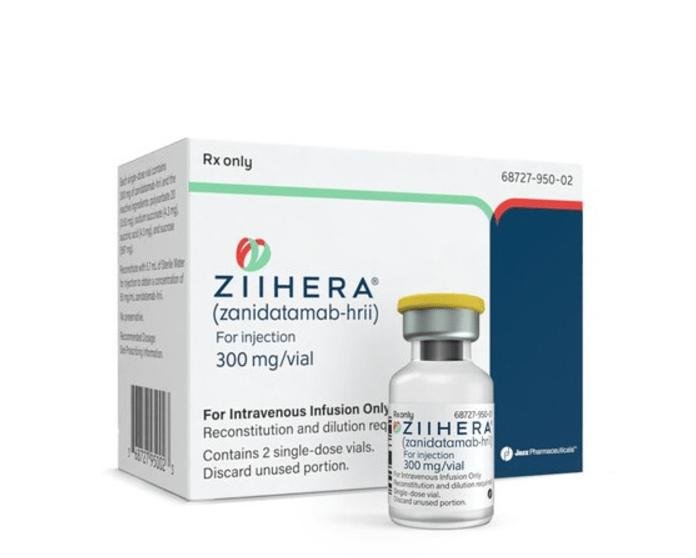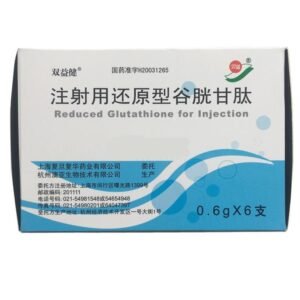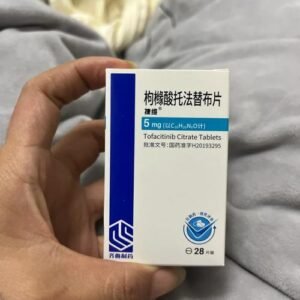ZIIHERA ZANIDATAMAB-HRII 泽尼达妥单抗
Zenidatumomab is a targeted therapy drug, a bispecific antibody, that activates the immune system to attack cancer cells by simultaneously binding to two antigens (such as CD3 and tumor-associated antigens). The drug is currently in the clinical trial stage, mainly exploring the efficacy and safety in solid tumors or hematological malignancies. The specific application needs to strictly follow the doctor’s guidance.
Drug Overview
Zenidatumomab uses a dual-target binding mechanism to recognize specific antigens on the surface of tumor cells on the one hand, and activate T cells on the other hand to form immune synapses to accurately kill cancer cells. This design is intended to enhance anti-tumor activity and reduce damage to normal tissues.
Mechanism of Action
Bispecific antibody structure: Targets CD3 (T cell surface marker) and tumor-associated antigens (such as B cell maturation antigen BCMA) at the same time to promote T cells to bind to cancer cells.
Immune Activation: Activated T cells release cytokines and cytotoxic substances to directly destroy tumor cells.
Indications and Research Progress
Current research focuses on the potential treatment of multiple myeloma, lymphoma and some solid tumors. Early clinical trial data show that it may have an objective response rate for patients with relapsed/refractory tumors, but long-term efficacy and safety still need to be verified by larger-scale studies.
Precautions for use
Side effect management: Common adverse reactions include cytokine release syndrome (CRS), fatigue, and hematopoiesis, which require close monitoring and timely intervention.
Personalized treatment: Before taking the drug, the patient’s immune status, tumor type, and gene expression level need to be evaluated to ensure applicability.
Strictly follow the doctor’s advice: The dosage and course of treatment must be carried out according to the clinical trial protocol or the doctor’s advice, and must not be adjusted or interrupted on their own.
Future development
Zenidatuzumab represents the cutting-edge exploration of dual-antibody drugs in tumor immunotherapy. In the future, it may be combined with chemotherapy, immune checkpoint inhibitors, and other programs to improve efficacy. Patients participating in such treatments need to go through regular hospitals or clinical trial institutions and fully understand the potential risks and benefits.
Any use of this drug should be consulted with an oncologist, and a treatment plan should be formulated according to individual conditions.
View more
Share:
Products
Our offers
Health Classification
Let us work together to protect precious health




























